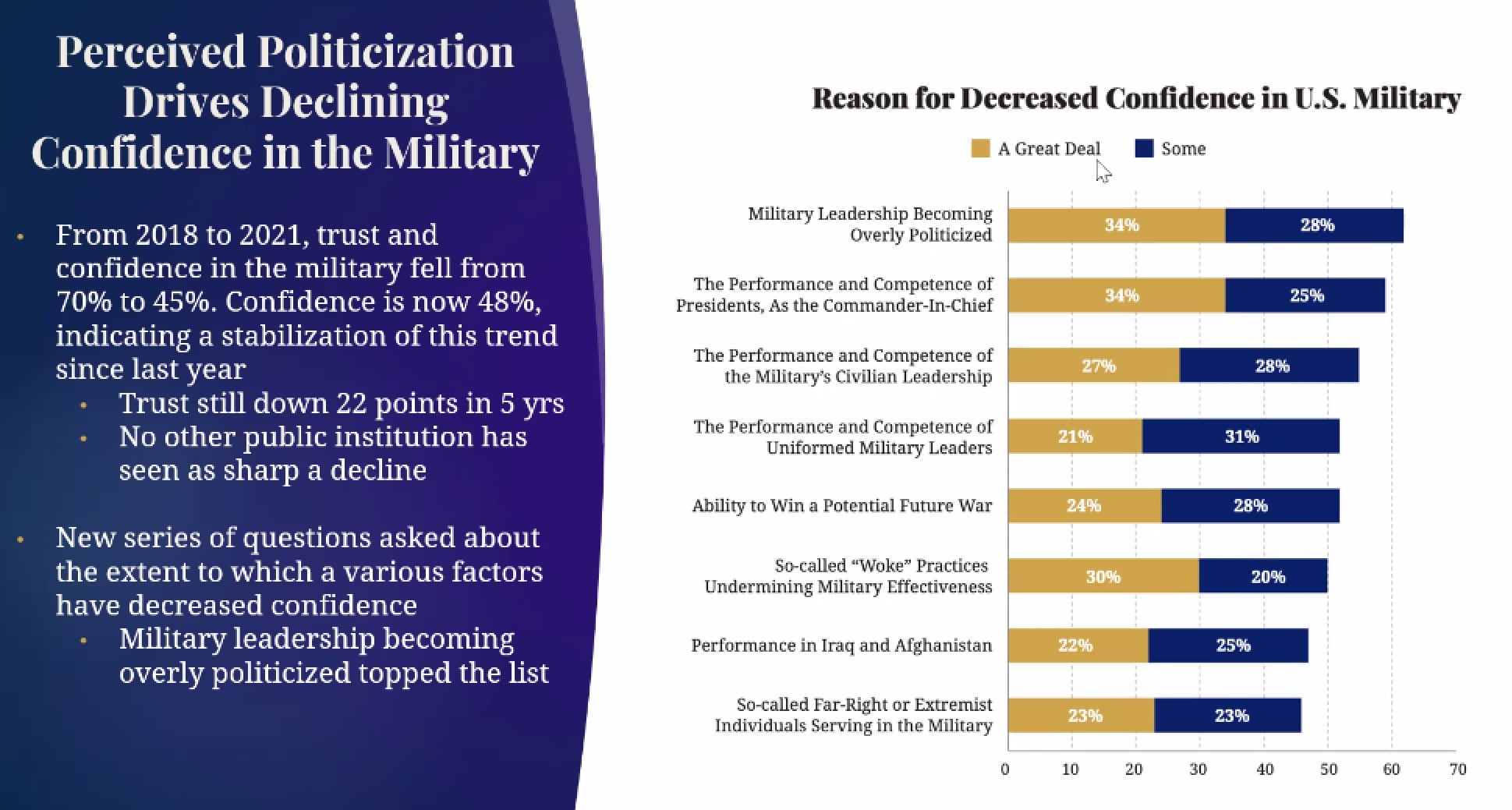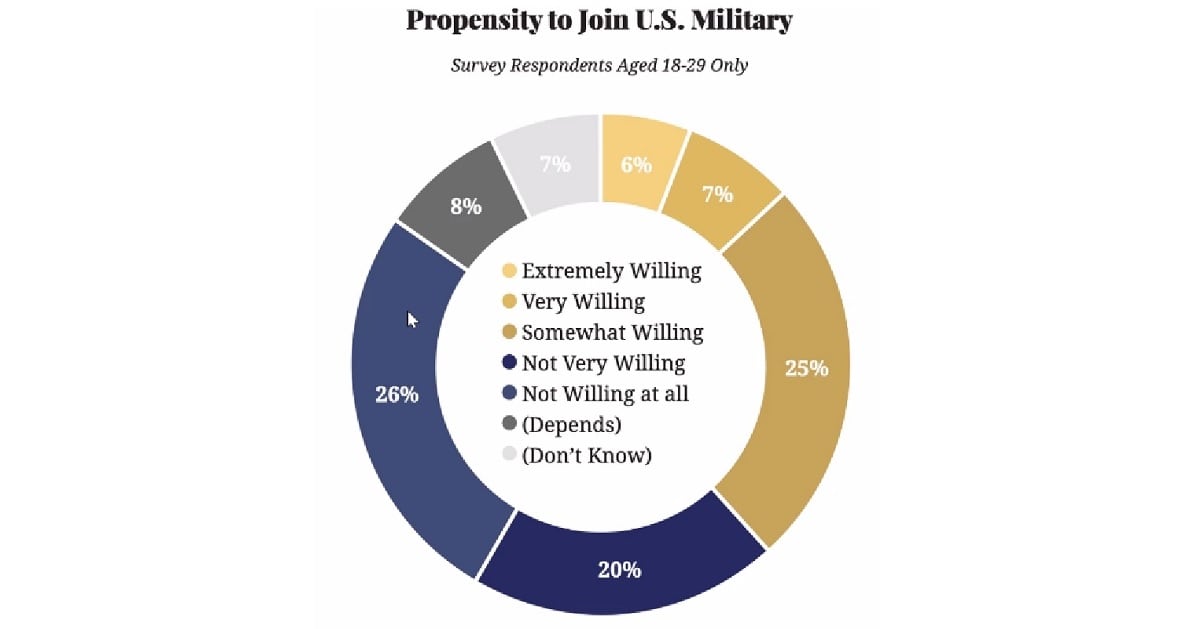The American public’s historically low confidence in the military as a public institution is not due solely to the action of civil or uniformed military leaders, according to an annual survey from the Reagan Institute.
Instead, the Reagan National Defense Survey found that it’s the actions of commanders in chief ― presidents ― that have predominantly caused respondents to see the Defense Department as overly politicized. Likewise, Republicans and Democrats are split on the threats they perceive as threatening the military: About half of respondents singled out “woke” policies, most of them leaning Republican, while half pointed toward far-right or extremist service members, most of them leaning Democratic.
This is the first year that the survey’s been able to draw these distinctions. Previously, respondents were only asked about their trust and confidence in the military, with 70% saying they had “a great deal” in 2018′s inaugural go-round. That number has fallen precipitously since, down to 45% in 2021, which a small uptick to 48% in 2022.

In 2021, the survey asked an open-ended question about why that confidence was declining, and the main response was politicization, Rachel Hoff, the Reagan Institute’s policy director, told reporters Tuesday.
To examine why, the group added a new series of questions examining what has led to that decline in confidence, Hoff said.
They narrowed it down to eight questions, including three on the military’s different types of leadership, and two to capture more partisan concerns: the previously mentioned “wokeness” and extremism in the ranks.
Generally, 52% of respondents pointed to an overly politicized leadership contributing at least some to their level of trust.
Just under half of respondents noted that the military’s role in the Iraq and Afghanistan wars decreased their confidence in the armed forces, with 52% saying they had concerns about the military’s ability to win a future war.
“There was also a decrease in those confident in the military’s ability to act in a professional and nonpolitical manner, from 40% in 2021 to 35%,” according to the survey’s summary. “These trends seem to demonstrate a connection between Americans’ sense of the military’s ability to perform its core function and their perception of its leaders becoming overly politicized.”
Recruiting and beyond
This year’s survey included another first: asking respondents ages 18 to 29 how they felt about the idea of joining the military, This line of inquiry was inspired by a rash of headlines earlier this year about the services’ struggles to meet their recruiting goals.
RELATED

Over a quarter of them indicated they were “not willing at all,” while 13% said they were “extremely” or “very” willing.

That response is not far from the Defense Department’s own data, most recently gathered in fall 2021, which found that just 9% of Americans aged 16 to 21 thought it likely that they would join the military in the next few years.
The survey asked questions on some other hot topics, including the war in Ukraine and the United States’ China strategy.
Respondents overall, 57%, said they believe the U.S. should continue to stand with Ukraine in fighting the Russian invasion, with 82% seeing Russia as an enemy, up from 65% in 2021.
“Regarding the assistance the United States has already sent to Ukraine, 39% say the United States has sent about the right amount, while a quarter (25%) say it has sent too little, and another quarter (24%) say it has sent too much,” according to the survey summary.
RELATED

Concern over China is also up, with 75% of respondents seeing the country as an enemy, a 10-point jump over last year. However, 54% of respondents aid the U.S. doesn’t have a clear strategy for confronting China.
Meghann Myers is the Pentagon bureau chief at Military Times. She covers operations, policy, personnel, leadership and other issues affecting service members.





